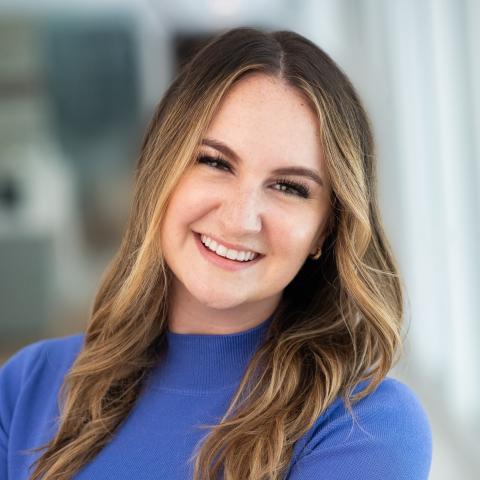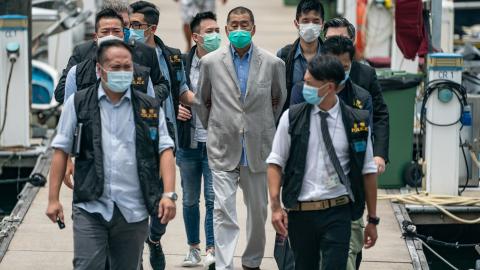It has been over six years since Pastor Wang Yi was detained by the Chinese Communist Party for his Christian faith, along with 100 congregants of the Early Rain Covenant Church. While the others were eventually released, Pastor Wang has remained behind bars since 2018. Today, he is in poor health, denied access to a Bible, and separated from his wife and son. Pastor Wang is one of the thousands, if not millions, of political prisoners the CCP currently extrajudicially imprisons in China.
While many authoritarian countries take political prisoners, the scale of the CCP’s mass imprisonment on political grounds is vast and without parallel. There are at least 1.8 million Uyghurs alone currently held in political prison camps. That’s to say nothing of the nearly 2,000 Hong Kongers detained since 2019; close to 1,000 remain detained today. The CCP targets anyone it views as a threat to the party. Extrajudicial imprisonment is hardly peripheral to the CCP’s foreign and domestic policy objectives. In fact, it is a tactic the CCP relies on to achieve its foreign policy objectives of maintaining internal stability and safeguarding sovereignty.
Those imprisoned are the same individuals the party falsely paints as a threat to both priorities. Contrary to the party’s line, these individuals are peaceful. They include doctors, mothers, and grandmothers. Gulshan Abbas was imprisoned for no other reason than that she is Uyghur. They are people like Apple Daily founder and billionaire Jimmy Lai, who is imprisoned for his support of the pro-democracy movement in Hong Kong. And of course, there’s Tibetan Gedhun Choekyi Nyima, abducted just shy of the age of six along with his family, mere days after being named the eleventh panchen lama by the Dalai Lama. They are all members of minority communities across China that the CCP views as a threat.
Given the emphasis the CCP places on taking political prisoners, the US government should strengthen its efforts to secure political prisoner release. Political prisoner advocacy may seem tangential to US foreign policy objectives. But it is one of the most practical steps the US government can take to offer relief to persecuted populations when Washington cannot easily fix the system that targets these populations, as is certainly the case in China.
As it stands right now, Congress has a stronger apparatus for securing political prisoner release than the executive branch. The two branches work together; however, the relative weakness in tools from the executive branch hamstrings broader efforts to set political prisoners free.
Contrary to popular belief, there is no central apparatus for securing political prisoner release within the executive branch. Although the Office of Special Presidential Envoy for Hostage Affairs (SPEHA) has acted as a useful interlocutor in securing political prisoner release, its primary mandate focuses on securing the release of American hostages, not foreign political prisoners.
The lack of a centralized apparatus for securing political prisoner release has created several problems. First, it has meant that political prisoner advocacy has become a secondary or even tertiary priority in US foreign policy.
Second, the hostage-focused apparatus has meant that many political prisoners are not represented within the system. Unlike hostages that can be recognized and identified by the US government as “wrongfully detained,” political prisoners have no analogous track to identify their plight. Many political prisoners do not identify as hostages. And by rejecting the wrongfully detained label, political prisoners have fewer political options available for their advocacy.
Third, many political prisoners require expeditious resettlement in the United States or a third country to ensure their safety after their extrajudicial imprisonment. The current American refugee and asylum system is woefully inadequate to meet their needs, and few other countries have the capacity or political will to provide much-needed and time-sensitive resettlement.
To alleviate these challenges, the United States should elevate political prisoner release by establishing an Office of Political Prisoner Advocacy (OPPA) with a Senate-confirmed special envoy for political prisoner advocacy, who would hold an ambassadorial rank.
As outlined in my Hudson Institute report, the OPPA would be principally tasked with identifying the tools and diplomatic levers necessary to secure the release of political prisoners. Tasks could include identifying individuals and entities within China responsible for imprisoning and persecuting political prisoners for sanctioning; identifying key diplomatic moments to draw attention to specific cases during diplomatic negotiations; identifying ways to shift risk to secure political prisoner release; and interfacing with family members of political prisoners to coordinate their cases better.
The OPPA could also designate individuals as “arbitrarily detained”, a new designation specifically for political prisoners that paves the way for sustained US commitment to securing their release and meaningfully distinguishes political prisoners from hostages. Additionally, the OPPA could work with other components within the State Department to ensure thorough vetting, expeditious resettlement, and support after the political prisoner is successfully resettled in the United States.
One way to ensure continued commitment to securing political prisoners’ release is for the OPPA to issue an annual report highlighting the cases of arbitrarily detained political prisoners, outlining actions taken to secure their release, and identifying next action steps to move their cases forward.
In particular, the report could cover actions taken by both Congress and the executive branch and serve as a springboard for improved coordination between the two branches of government. Among other things, the report could include a list of individuals the United States has designated as arbitrarily detained. It could also issue a classified list of individuals ripe for sanctioning to be shared with both Congress and the Treasury Department.
By creating a centralized authority for their advocacy, political prisoners, like Pastor Wang, would have a more consistent advocate at the US Department of State. As the United States faces threats from many authoritarian countries around the globe, including China, the United States needs an updated infrastructure to address the epidemic of political imprisonment.
The United States should not leave valuable tools that help political prisoners and hold those responsible for taking political prisoners off the table. As Congress and the executive branch look for ways to strengthen the US response, they should create an OPPA and appoint a special envoy for political prisoner advocacy.




















